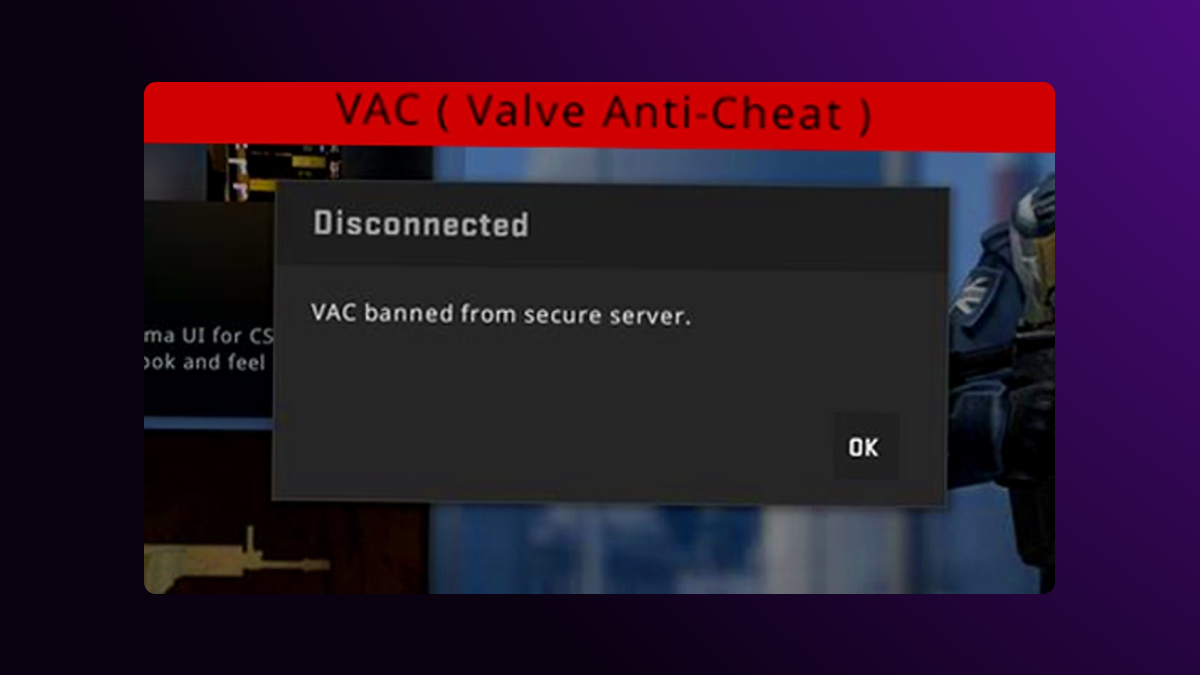Bridal Bliss Insights
Your go-to blog for all things weddings, trends, and bridal elegance.
VAC Ban Chronicles: Tales from the CS2 Underworld
Explore the dark side of Counter-Strike 2 with gripping tales of VAC bans, epic fails, and hidden secrets from the gaming underworld.
Understanding VAC Bans: How They Work and What They Mean for CS2 Players
VAC bans, or Valve Anti-Cheat bans, are a crucial aspect of maintaining a fair gaming environment in games like Counter-Strike 2 (CS2). These bans are enforced by Valve Corporation to prevent players from using cheats or hacks that give them an unfair advantage. When a player receives a VAC ban, it is important to note that this ban is not temporary and will remain on their account permanently. Additionally, players need to understand that VAC bans apply to all games that use the Steam network, meaning that one instance of cheating can affect access to multiple titles. This system is designed to deter cheating by establishing a strict, no-tolerance policy.
For players who are affected by VAC bans, the implications can be significant. Not only does it prevent them from playing on official servers, but it can also impact their ability to participate in competitive gaming. Once a player is banned, any CS2 matchmaking or competitive play will be off-limits. However, it is essential to recognize that VAC bans are not the end of the road; they serve as a reminder for players to engage in fair play and respect the gaming community. Ensuring to play legitimately not only enhances the experience for everyone involved but also protects against the risk of receiving a VAC ban.

Counter-Strike is a popular tactical first-person shooter game that pits two teams against each other: terrorists and counter-terrorists. Players engage in various objective-based game modes, where teamwork and strategy play crucial roles in achieving victory. For players looking to enhance their experience, a cs2 community servers guide can provide valuable insights on selecting and joining community-driven game servers that offer unique gameplay options.
Top 5 Myths About VAC Bans Debunked: What Every Gamer Should Know
When it comes to VAC (Valve Anti-Cheat) bans, there are numerous misconceptions that can confuse gamers and lead to misinformation. One of the most prevalent myths is that having a VAC ban means you will never be able to play any games on Steam again. In reality, VAC bans apply only to specific games where cheating occurred, allowing players to continue enjoying their other titles. Understanding this distinction is crucial for anyone who has received a ban, as it may not be as devastating as it seems.
Another common myth is that VAC bans can be removed or appealed through customer support. Unfortunately, this simply isn’t true. Once a player receives a VAC ban, it is permanent and cannot be reversed, regardless of the circumstances or claims made. This emphasizes the importance of playing fair and ensuring a clean gaming experience to avoid the risk of a ban. To help clarify further, here are the top five myths regarding VAC bans:
- Myth 1: VAC bans are just temporary.
- Myth 2: You can cheat in offline mode without consequences.
- Myth 3: VAC bans only affect single-player games.
- Myth 4: All players with a VAC ban are skillless.
- Myth 5: Using third-party software will not lead to a ban.
Can You Appeal a VAC Ban? Exploring the Options Available to CS2 Players
If you've found yourself on the receiving end of a VAC ban in CS2, you might be wondering if there is any way to appeal this decision. A VAC ban, or Valve Anti-Cheat ban, is a penalty imposed by Valve for cheating in their games, including Counter-Strike 2. Unfortunately, the official stance from Valve is that VAC bans are permanent and cannot be appealed. This means that once a player is banned, there is no formal process to contest the ban or have it lifted. However, some players still seek alternatives to resolve their situation.
While the option to appeal a VAC ban directly isn’t available, there are still a few steps players can take to potentially remedy their account status. First, it’s essential to ensure that any cheating software is completely uninstalled and that your account is secure against unauthorized access. Secondly, players may consider reaching out to Steam Support for clarification on the ban; while they generally do not reverse permanent bans, they may provide guidance or confirm the reason behind the ban. Lastly, staying involved in the CS2 community and engaging in fair play can help rebuild reputation and trust among peers, even if the VAC ban remains in place.